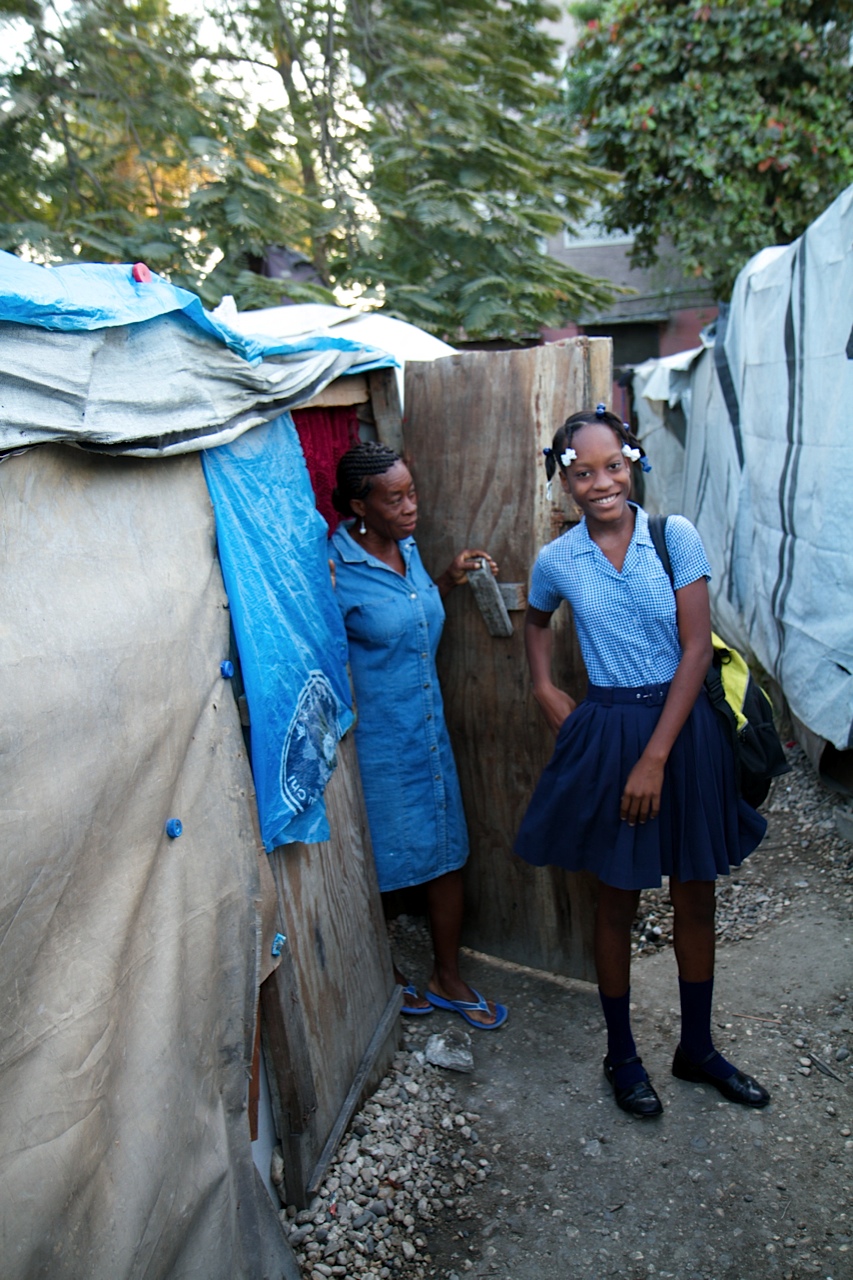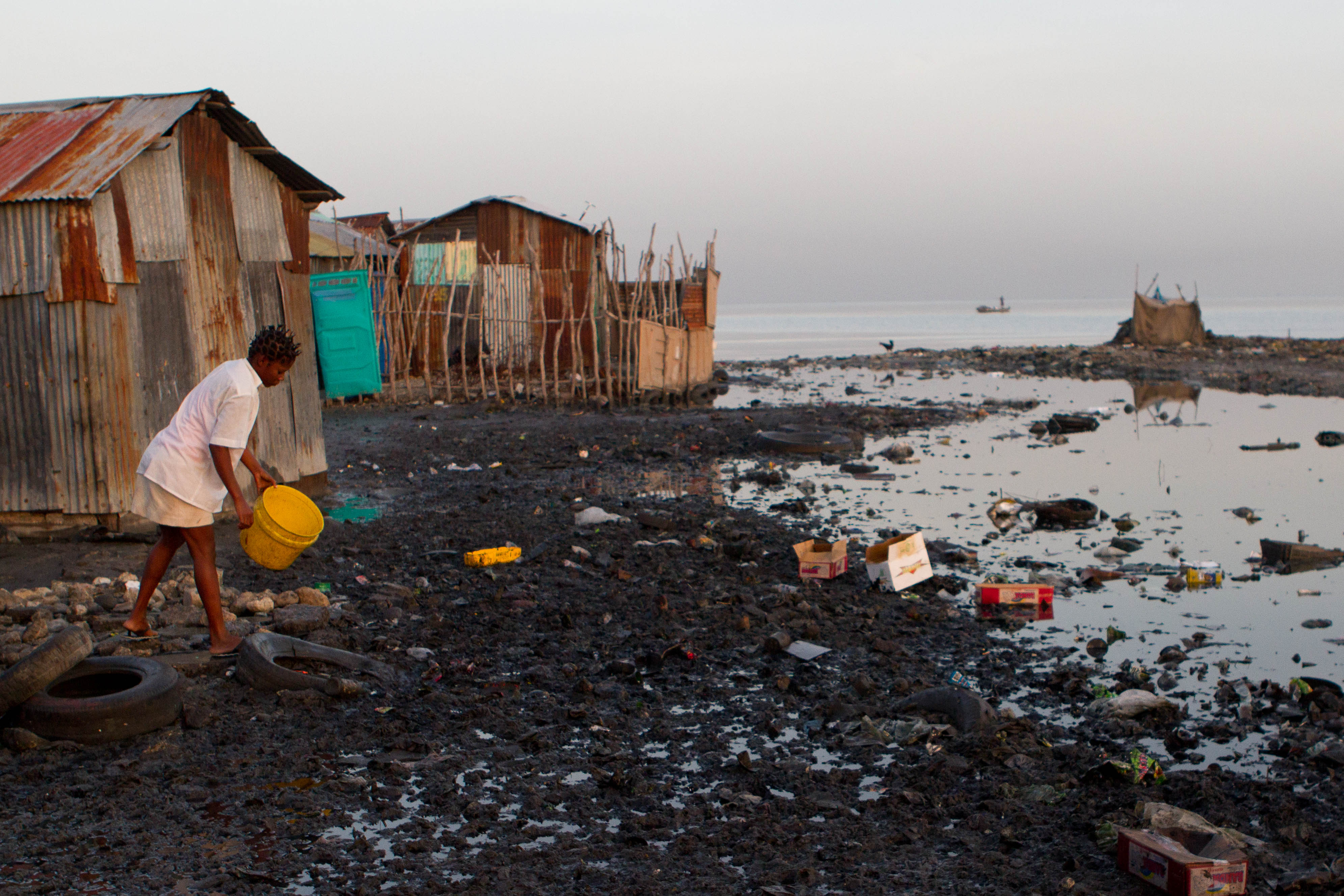Multiple Pulitzer Center grantee David Rochkind weathered Tropical Storm Isaac in Haiti, capturing photos of the aftermath for the New York Times. He sent this note using his phone since the internet is still largely down:
"At first glance it seemed like Isaac didn't really cause too much damage in Haiti. Driving around the streets of Port au Prince you saw downed trees and power lines, but not very much damaged property and nothing that would indicate the storm had caused loss of life. When I visited some of the tent camps that still remain from the 2010 earthquake and that house nearly 400,000 people across the country, the reality of Isaac hit me. A small fraction of those 400,000 people were evacuated to shelters, many of them choosing to stay with the few possessions they still had on the small plot of land that they could call home. I saw people whose tents were torn to shreds by the wind and whose belongings were soaked by the rain. I saw mothers breastfeeding in the ruins of their homes and children playing in the flooded waters of their neighborhoods. But when I entered a small tent community that experienced about two feet of flooding I was shocked. Even after it was clear that their homes were flooded, they remained. They cooked food standing shin deep in water, children giggled sitting on chairs above the water and women took naps on beds that were partially submerged. What could possibly cause people to feel more safe and secure napping in a flooded, wind-tattered tent than evacuating to a sturdy, dry shelter? Why do they turn a deaf ear to pleas by the government and aid groups to evacuate? Some say that they have no place to go. Or they are afraid if they leave they will never be allowed back. Or that everything they own will be stolen in their absence. The lack of secure housing is an immediate problem that needs to be solved to lessen the damage caused by disasters. But there are a host of other problems that are raised by events like Isaac whose answers are much more elusive."
(To see more of what life is like in the tent camps, watch this video that follows Cynthia, a 13-year old girl, through a school day.)
The death toll in Haiti now stands at 24, though if the threat of a spike in cholera cases from flooded waterways is realized, that number may rise.
Meghan Dhaliwal and Jason Hayes of Boston University, Pulitzer Center student fellows who reported on cholera in Haiti this summer, were concerned that the flooding may cause another spike in infection rates.
"I think the effects of tropical storm Isaac on Haiti illustrate, once again, many of the arguments for improved infrastructure," Hayes said via an email. "There is justified fear that the floodwaters will ignite a spike in cholera cases, but a rising epidemic curve will be only one of a myriad of health and economic issues to rise with the water. Most poignantly, when I think about the photographs Meghan took in Cite Soleil and remember how tenuous the equilibrium felt between livelihood and disaster, I am frightened to imagine how immediately this storm impacted that population. Storms will beset Haiti most years, the question is when the country will boast the infrastructure to perform emergency preparedness, not always disaster response."
Dhaliwal noted that the international media has been more focused on Isaac's impact on the Republican National Convention, which delayed its start in Tampa, Florida by one day due to the storm, than its effects on Haiti. She said via email "Haiti left a really strong impression on me for the short time I was there, and it is hard to watch from the sidelines as another blow is dealt to this beautiful island."
To read more about Haiti, see the Pulitzer Center's gateways on Haiti and Global Goods, Local Costs.

Project
Children at Risk
Across the world more attention needs to be focused on children's needs so that girls as well as...













